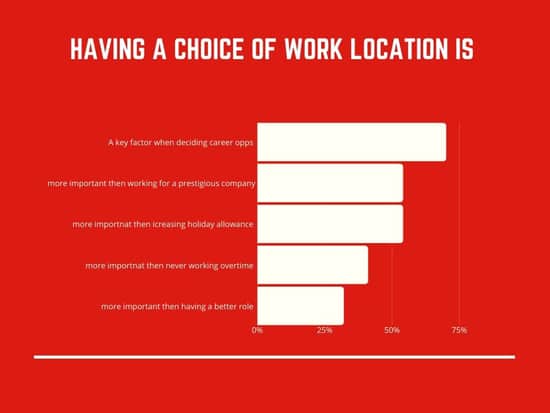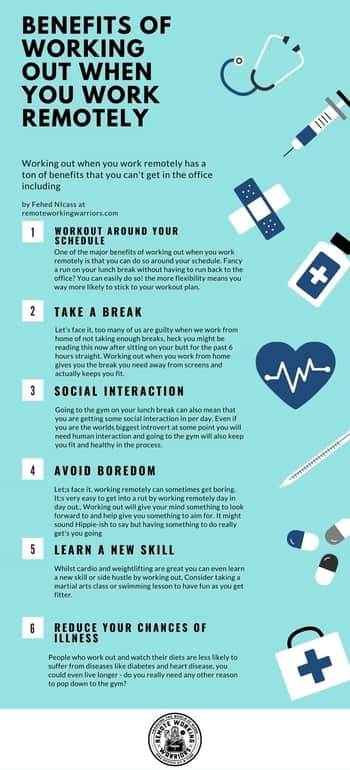This website is supported by its readers. If you click one of my links I may earn a commission. I am also a participant in the Amazon affiliates programme and I will also earn a commission from qualified purchases.

One of the major problems a lot of us remote workers face is depression. Depression sucks no matter what job you do but the feeling of isolation and loneliness are likely to be amplified working remotely.
Working from home can trigger bouts of depression for people who already struggle with their mental health. The increased time away from your colleagues and loneliness can amplify existing conditions if precautions are not taken.
So what are some precautions that you can take to try and prevent feeling of depression when you work from home? Read below the jump to find out more.
Now it’s worth mentioning that I am not a psychologist or a medical professional by any means, the first thing you should do if you feel depressed is contact one of the following or your doctor:
Samaritans: 116 123
Mental Helps: 1-888-993-3112
NAMI Helpline: 800-950-6264
What is depression?
According to Harvard Health Publishing, whilst depression is often categorized as being a chemical imbalance in the brain, the truth is it is an incredibly complex mental health disorder that can affect people differently.
It can be triggered and caused by a number of factors such as stressful life events, a genetic history in your family, medication or faulty mood regulation in the brain.
Whilst the symptoms of depression might be similar the causes are very different person to person and so any treatments will be dependent on the person.
What are the symptoms of depression?
According to the NHS, the main symptoms of depression are as follows:
- Low mood or sadness
- Feelings of hopelessness
- Low self esteem
- Feeling tearful
- Having no motivation or interest in things
- Finding it difficult to make decisions
- Not getting enjoyment out of life
Physical symptoms of depression include:
- Lack of energy
- Low sex drive
- Disturbed sleep
What to do if you feel depressed?
The first thing you should do if you have had feelings or symptoms of depression is to get in touch with your GP or local doctor.It is also worth speaking with specialist councillors who can help such as the Samaritans in the uk or Mental help in the USA. You can find their details below:
Samaritans: 116 123
Mental Helps: 1-888-993-3112
NAMI Helpline: 800-950-6264
What’s the link between working from home and depression?
So now we know what the symptoms of depression are and what you should do if you feel depressed. What is the link between working from home and depression?
Sadly, whilst a lot of us remote workers reduce our stress from the commute into the workplace, we have higher stress levels overall then those of us who work from an office full time. (41% compared to 21%).
This increased stress, lack of work life balance and often loneliness from a lack of social interactions can all trigger bouts of depression for those of us with mental health conditions.
How common is depression amongst those who work from home?
According to some studies 1 in 3 remote workers will have a feeling of depression at some point. In total 1 in 15 people will experience depression this year and 1 in 6 will experience depression at some point in their lives.
How to avoid feeling depressed when working from home?
So we talked about this earlier on but the most effective thing you can do to avoid feelings of depression when you work from home is to speak to a doctor or any of the following resources:
Samaritans: 116 123
Mental Helps: 1-888-993-3112
NAMI Helpline: 800-950-6264
That being said a lot of you will be proactive in wanting to do what you can to keep your depression at bay and so the following tips can ward off some of the symptoms you might be feeling
Exercise
One of the best things you can do for your mental health is to exercise regularly.
Not only is doing something like going for a run going to flood your body with positive endorphins, there is a social aspect to it too.
I know on some days going to the gym that has people in it despite not talking to them can go a long way to helping me feel calm.
Write down your goals
Oftentimes, a lot of us feel frustrated at not having a clear direction in life or feel like everything we do is overtaking our lives.
One of the best things I found to help counteract this would be to write down your goals.
Having a clear sense of direction or something to aim for can get you motivated to start your next big project and keep you focused.
So what are the best ways to write down goals?
Writing goals that are S.M.A.R.T are the best way forward which keep you accountable but are also achievable
S – Specific
M – Measurable
A – Achievable
R- Relevant
T-Timely
Call a friend
A major issue a lot of us remote workers have sadly in a huge sense of isolation when we work from home.
This is especially apparent if you live by yourself and have relatively little contact with your colleagues.
One thing then that always helps me is by getting on the phone and speaking to my colleagues.
It’s these small connections that really do make a difference in your life, you could even do something like holding a virtual lunch if they live far away or in a different country from you.

Get a pet
Pet owners are a lot less likely to suffer from mental health issues like depressions than those of us who do not have them.
Cats and dogs in particular, according to some studies have been found to have a positive impact on the lives of their owners.
Pets also require a lot of exercise especially if you opt for a big dog and so can also help hit two birds with one stone by keeping you fit as well.
Journal
One of the hardest things to do is track when you will feel good again when feeling low, and so using a journal can be a fantastic tool to improve your mental health.
Let’s say you’re going through a really bad bout of depression, you may feel as though there will be no end in sight to it, however looking through your journal will give you a light at the end of the tunnel, showing that you may have gotten over this before and you can do it again.
We’ll touch on this later but in my journal I also like to write down what I am grateful for.
Use the pomodoro technique
Us remote workers often work the longest hours and work harder than our office based colleagues.
As such we have a bad habit of not taking enough breaks or overworking, causing unnecessary damage to our wellbeing which can lead to poor mental health.
One of the best ways I like to counteract this is by using the pomodoro technique which allows you to take 5 minute breaks every thirty minutes to help break up your work day.
You Will actually get more done and feel a lot more rested as you do it.
You can read up more on how to take breaks when working from home here.
Do up your office
Around 84% of remote workers do their work from home.
For a lot of us, staring at the same lousy set up day after day can get a little bit draining so why not make your work environment somewhere you actually want to enjoy.
Consider looking at a standing desk to help get you more exercise in the day or invest in some LEDs if you have no windows in your office to get natural light from.
The choice really is yours and you can even use this project as a way of getting out the house as opposed to buying your items online.
That being said you can find all of my recommendations for a home office here.
Use a shared workspace
Isolation and lack of social interaction are massive triggers for those with depression.
One easy way you can turn this around is by looking into shared workspaces. Using a shared space can go a long way in ensuring you get the social interaction you need and will also help get you out the house.
Try to speak with your HR team about potentially setting this up with your colleagues, you can start small something like one per month to start off with and then slowly work your way up from there.

Start a hobby
As mentioned earlier, too many of us remote workers work longer hours that are required, blurring the lines between our personal and professional lives.
One of the easiest things you can do to reclaim this is to start a hobby.
It could be something as simple as reading or watching a show you’ve been dying to check out.
For others it might be something more complex like starting martial arts (jujitsu gets my vote)
Either way, doing something outside of work that does not take everything from you is a great way to keep you preoccupied.
Practice what you are thankful for
A little bit of mindfulness can go a long way. This is just good advice for anyone,
Focusing on the positives, what you are thankful for can be a great way to help put things in perspective for you.
Think hard, I’m sure you can find 3 things that you are thankful for, it could be as basic as being alive or having a roof over your head.
Write these down every morning and every night for two weeks and you may find yourself starting to become more in tune with yourself.
Create a daily schedule
40% of remote workers say that beating the commute and the flexibility that comes with working remotely is the best part of their day.
That being said, organizing the hours that are in front of you are the most important.
The best way to do this would be via setting up a daily schedule and sticking with it.
I like to put in my most difficult tasks first thing in the morning so no matter what I do I have a sense of accomplishment for the day.
Block out your calendar and set reminders on your phone if you are trying this out for the first time to give you the extra push to stick to it.

Get dressed in the morning
Similarly to the point above, getting dressed in the morning, regardless of if you are on camera or not can be a fantastic way of starting the day off right and winning your choices.
You only have a certain amount of willpower as the day goes on so ensure you do what you can to get into a plan of winning.
Another great idea would be to make your bed first thing, this will set your mindset up to be successful and can put you on a positive trajectory.
Watch your diet
It’s so easy for diets to fall by the wayside when feeling down. Pair that up with working remotely and it’s very difficult to not see your waistline increase a few inches when you start working from home.
Ensure you stick to a healthy balanced diet, track your calories and drink at least 2 litres of water per day.
It’s amazing how good you feel eating the right nutrition and while it will be tough in the beginning it’s definitely worth keeping to it.
Meditate
Finally, focusing on medication and being present with yourself every day can go a long way to help put things in perspective.
Whilst mindfulness might come across as a little bit new agey, it definitely has its merits. It’s not all meditating in a circle, a great Ted talk to watch is by Phil Boissiere
Check it out here:
Hopefully this post has helped give you some insight into the links between working from home and depression A lot of people reading this post are in the process of doing up their own home offices so once again if you would like my recommendations you can find them here.
Once again the resources if you are struggling with mental health can be found here:
Samaritans: 116 123
Mental Helps: 1-888-993-3112
NAMI Helpline: 800-950-6264
The content on this on this site has been written by Fehed Nicass who has over a decades worth of experience in sales and has worked remotely for the past 2 years.

